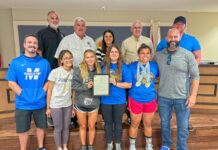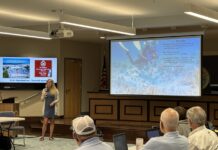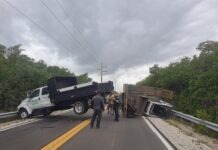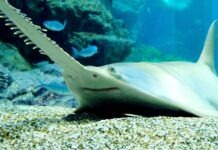By Alex Press
The status of the Key Deer will forever be endangered but scientists are doing their best to save the species from what possibly may come.
Fish and Wildlife Ecologist Phillip Hughes explained continued threats for the animals.
“In the big picture the Key Deer have continued to have a history of losing ground due to lack of fresh water from sea level rise,” said Hughes. “High elevations are critical for success because that is where the freshwater lens’s are.”
Fish and Wildlife has been collaborating with the University of Central Florida on a study to determine the genetic variation within the species and also give an estimation on the population of the deer. Determining the variation will help scientists to create a subset to repopulate an area if their range were to ever become uninhabitable.
UCF Conservation Geneticist, Eric Hoffman, emphasizes why the study is necessary.
“We believe the population is about where it was before the deer were hunted to near extinction,” said Hoffman. “We want to know if the hunting, as well as isolation, has effected the genetic diversity.”
Genetic variation is critical for the animals because they are more able to adapt in different environments according to Hughes. The study also looks at the amount of inbreeding done.
“We are looking to see if Alpha Males are responsible for the majority of breeding,” he said.
Capturing the animals is not required for this study. Hoffman and Hughes agree this is the most non-invasive and cost effective study yet. Hoffman explains the procedure for getting lab samples.
“The majority of our DNA comes from deer pellets we’ve collected on Big Pine and No Name,” he said. “We also get samples from road kill’s tissues and a two millimeter biopsy dart that doesn’t harm the animals.”
Habitat loss is not the only obstacle the deer face. Vehicles count for more than 50 percent of deaths according to FWC and the feeding of Key Deer puts the species at risk.
“When residents and tourists feed the deer it makes them crazier and dumber,” said Hughes. “The deer are more likely to hang out by the road because of illegal feeding.”
Hughes believes the population has remained stable the last few years and does have positive news about the deer.
“Colonies on Sugarloaf and Cudjoe are doing well and there is evidence of them breeding on those islands,” he said.

























